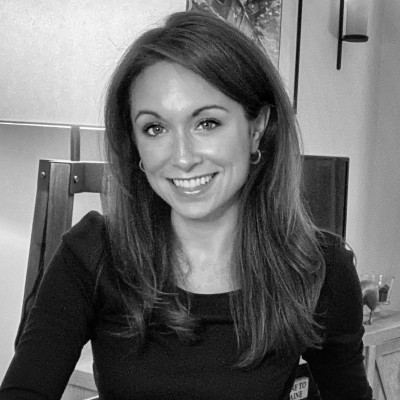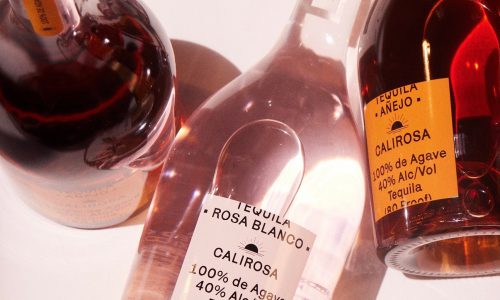Few people are as enthusiastic, passionate, and knowledgeable about the beverage industry as Ken Sadowsky. His intuition for identifying emerging trends has made him a leader in the space as an advisor, investor, and director. It helps that he grew up in the industry — his grandfather started Atlas Distributing, a Massachusetts-based, full-service beverage and beer distributor. Since leaving the family business after building out the company’s non-alc sector, he’s both advised and invested in numerous globally recognized brands that are changing the industry.
We caught up with him to learn more about his innate ability to identify industry microtrends, what he looks for in investment opportunities, how he identifies winning concepts, and more.
ForceBrands: Forbes magazine named you the ‘beverage whisperer’ in an article from 2013. How did you earn this title?
Ken Sadowsky: My career up until that point was working exclusively as a beverage distrubutor in Massachusetts. My career path was very linear. I was the third-generation owner of a family business my grandfather started called Atlas Distributing in Auburn, Mass. I started investing in Glaceau vitaminwater and joined their board. I later moved down to Miami and become a director of Vita Coco in 2006 and Hint. I was familiar with microtrends, which is perhaps why the journalist dubbed me the ‘beverage whisperer.’
FB: Tell us more about Atlas Distributing and your role in the company.
KS: Atlas is primarily a beer distribution company. When I joined the family business, they gave me a project of starting the non-alc sector of the company. At the time, in Worcester, Mass., there was Coca-Cola, PepsiCo, and Polar Seltzer. I surveyed the market and realized that we needed to be premium in the market. It was pure luck and great timing — it was at the formative moment for the better-for you-beverage (non-alc) space. The first brand we took on was Original New York Seltzer.
FB: How do you describe your role since leaving Atlas?
KS: I describe myself as a coach of entrepreneurs, not an entrepreneur. I would have to have much more risk tolerance to be an entrepreneur and I’m pretty conservative and risk-averse. I enjoy investing in companies.
FB: Are there any investments you wish you didn’t make?
KS: The road is littered with my investment mistakes — I have a ton of stock certificates that I intend to eventually use as wallpaper. Kidding aside, I would say I’ve been successful 50 percent of the time. I’ve definitely learned from my mistakes. It’s not easy to be on the bleeding edge — it’s better to be on the cutting edge. The beverage industry is evolutionary, not revolutionary — the industry moves in smaller incremental changes over time.
FB: Tell us about your role as an advisor.
KS: I’m the advisor for Verlinvest, the Belgian AB-InBev family diversification vehicle. They are the lead investors in Vita Coco, Hint, and Sambazon. Through my vitaminwater network, I got them interested in popchips. They’re now also one of the biggest investors in Oatly.
FB: How do you identify promising industry trends?
KS: It really does come down to better-for-you and how the general public defines it. Five years ago, you could look at all these high pressure processed (HPP) juices and think they’re great, but now you look at how sugar has been vilified. Better-for-you is evolving.
FB: What qualities do early concepts have that give them the potential to achieve long-term success? Is there an ‘it’ factor these concepts share?
KS: The ‘it’ factor tends to be the entrepreneur over the product. One expression I’ve heard over time and time again, “I’d bet on the jockey over the horse.”
FB: What happens if that entrepreneur makes a pivot that you wouldn’t necessarily advise?
KS: There are a number of entrepreneurs who made pivots that I wouldn’t advise, but I didn’t feel strongly against leaving them as an advisor. For example, when I invested in Bai, Ben Weiss had six SKUs that were healthy five-calorie antioxidant drinks. He did those Bai five-calorie drinks so well and that was the brand’s point of differentiation. I told him he was cutting out half the market, but he did it anyway, and he did it with such conviction — and it worked.
Another example of that was when I invested in and became an advisor to Dyla Brands that had two products: Stur and FORTO coffee shots. When I first invested in the company, I was investing in Stur, not FORTO as the product was such a departure from a healthy liquid flavor enhancer. I remember being skeptical of founder Neel Premkumar‘s decision to get into the coffee category when he hadn’t worked with coffee flavors before. Today, the business is 80 percent FORTO — another example of why I bet on the person over the products.
FB: Some products seem like overnight successes. Tell us more about your role in growing CBD-seltzer millennial sensation Recess.
KS: What I am best at in regards to Recess is the general commercialization of a beverage brand and answering the real-world situations that come up for brands. My role in advising Recess is being thoughtful about ways that the CBD component can play into potential distributors. And because I come from that world, I know the landscape of distributors and the kinds of ones that would be interested in Recess.
FB: Why do you think Recess has become such a success so quickly?
KS: The name is great. The packaging is great. The social media is great — the antidote to the modern world. Founder and CEO Ben Witte has positioned the product in such a way that it’s almost irrespective of the CBD components. His approach is very insightful and I think that when –not if — the FDA fully approves the food safety component of CBD, then Recess will have permission from consumers to lean in on that propriety component of their mission.
FB: At which point in a company’s growth and development should they look to advisors for assistance in building and scaling their brand?
KS: An entrepreneur who has really keen sense of self-awareness and knows what they’re not good at should seek outside help and consultation. The really good ones know what they’re not good at. Wherever those deficits are, you want to fill those as soon as you can. It’s always a good idea to have expert help.
FB: Have you considered venturing outside the food and beverage space to either invest in or advise?
KS: There’s a New Orleans-based luxury toothpaste company Theodent, which comes from the cacao plant. The Tulane University alumni network reached out to me about it. They have some impressive people on their board. It’s definitely outside of the box.
FB: How would you describe your approach to investing and advising?
KS: I have a personal kind of consulting/advisory/director mission to never have such arrogance that you think you can be helpful to any company, but never be complacent that you’re not open to new segments or sectors. What keeps driving me back to the beverage space is the sheer velocity of the game. It’s fast. When you think about consumption and how many people drink various kinds of beverages each day, it certainly outpaces other consumer sectors.
FB: How do you predict the beverage industry will continue to evolve?
KS: My crystal ball is a little bit murky. I don’t see any single trend sticking out to me, but in terms of what is on my radar — and it’s obvious to me — but better-for-you will continue as will the disruption of the legacy companies. That’s a real separation or divergence of what we’re coming from.
As an observer of the industry, the legacy companies are really behind, and they’re behind because there’s mistrust from consumers. It used to be easy for CPG giants like P&G to roll out trusted brands, but that isn’t the case anymore. There’s a real opportunity for entrepreneurs to step in and build that trust and emotional connection between brands and consumers. It’s ripe for disruption. That makes my job more confusing and harder, but more rewarding as you see some of those things come to fruition.
As far as uber trends, how consumers define better-for-you will continue to shape the industry — te vilification of sugar, shorter ingredient panels across all of CPG, and so forth.
FB: What excites you most about being at the forefront of the industry right now?
KS: I don’t really have a job. I have a number of roles. People ask me all the time, “You’re working all the time; shouldn’t you take a vacation?” And I reply, “From what?”
Interested in working in the fast-paced beverage industry? Explore our BevForce division.






